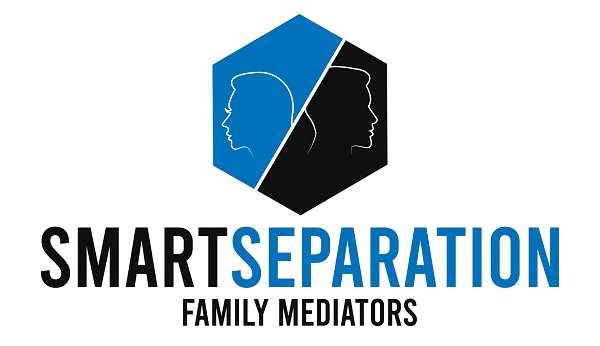What Is Family Mediation and Why Is It Popular in Toronto?
Family mediation has become a trusted alternative to court-based family law proceedings in Toronto. For couples navigating separation or divorce, mediation offers a supportive and structured environment to resolve issues without the stress of litigation.
- A voluntary, confidential process: Family mediation is entirely voluntary and private. What’s said in mediation stays in mediation, creating a safe space for open dialogue.
- Helps resolve disputes around parenting, finances, and property: Whether it’s parenting time, child support, spousal support, or the division of assets, mediation helps couples work through critical matters efficiently.
- Encouraged by Ontario family courts before litigation: In Toronto and throughout Ontario, courts often recommend mediation before moving forward with costly and time-consuming litigation. It’s seen as a practical step toward mutual resolution.
- Neutral third-party (the mediator) facilitates discussions: The Toronto family mediator does not take sides.
Purpose of the First Mediation Session
The first mediation session serves as the foundation for the entire process.
- Establish ground rules and confidentiality: The mediator will explain the expectations for respectful communication and have both parties agree to keep discussions confidential.
- Identify issues to be resolved: Key topics—such as parenting arrangements, child or spousal support, and property division—are outlined to shape the scope of mediation.
- Understand each party’s concerns and objectives: Each person will have the opportunity to express their priorities and what they hope to achieve, helping the mediator tailor the process to both parties’ needs.
- Assess readiness for mediation: The mediator evaluates whether both parties are emotionally and practically prepared to proceed. If necessary, they may suggest counselling or legal consultation before continuing.
- Create a framework for future sessions: Based on the issues and concerns raised, the mediator will propose a plan for upcoming meetings, including timelines and topic sequencing to ensure productive progress.
What Happens Before the First Session with a Toronto Family Mediator?
Before the first joint mediation session, many Toronto family mediators follow a structured pre-mediation process.
- Initial intake or screening call (often done individually): Each party typically participates in a private intake session with the mediator. This allows the mediator to assess the situation, gather background information, and ensure both individuals are suitable candidates for mediation.
- Explanation of fees and services: The mediator will outline their fee structure—whether hourly or flat-fee—and explain what services are included, helping parties make informed decisions.
- Opportunity to raise safety concerns: During intake, mediators screen for power imbalances, coercion, or any history of domestic violence. If mediation isn’t appropriate due to safety risks, alternative options may be recommended.
- Signing of consent and confidentiality agreements: Both parties are required to formally agree to the mediation process, including its voluntary and confidential nature.
- Completion of intake forms or financial disclosure documents: Participants may be asked to submit information such as income, debts, and assets ahead of time to streamline discussions around property and support.
What to Bring to Your First Mediation Session in Toronto
Bringing the right documents and mindset sets the stage for effective problem-solving.
- Identification: A government-issued photo ID may be required for verification and administrative purposes.
- Financial documents: Include recent pay stubs, tax returns, bank statements, lists of assets and debts, and other financial disclosures. This information is essential for discussions around support and property division.
- List of issues you’d like to resolve: Prepare a written outline of the topics you hope to address—such as parenting schedules, support arrangements, or who will remain in the family home.
- Any court documents or prior agreements: Bring any relevant legal documents, including separation agreements, parenting plans, or court orders that may impact your discussions.
- Willingness to listen and negotiate: While not a physical item, a cooperative mindset is crucial. Mediation works best when both parties are open to hearing each other’s perspectives and working toward compromise.
How a Toronto Family Mediator Guides the Process
While they do not provide legal advice or make decisions for you, they are trained to support both parties in reaching a mutually acceptable resolution.
- Facilitates communication in a structured, respectful way: The mediator sets a calm and organized tone, ensuring both parties have equal opportunity to speak and be heard without interruption or hostility.
- Helps clarify misunderstandings: When communication breaks down or messages are misinterpreted, the mediator helps restate and reframe issues so everyone is on the same page.
- Maintains neutrality—does not take sides: Unlike a lawyer, the mediator does not advocate for either party. Their role is to support a fair and balanced conversation without bias.
- Encourages solutions that are fair and child-focused: Mediators promote outcomes that consider the best interests of any children involved, supporting long-term co-parenting success.
- May recommend legal review of any agreement reached: Once a tentative agreement is drafted, the mediator often advises both parties to seek independent legal advice before finalizing the document, especially when filing it with the Ontario family court.
Common Concerns Addressed in the First Session
Many individuals come to their first family mediation session in Toronto with understandable concerns—both emotional and practical. A good family mediator will take time to acknowledge and address these concerns early in the process to create a sense of safety and trust.
- Anxiety about confrontation: The mediator fosters a calm and respectful environment, helping reduce the fear of heated arguments. The structured nature of mediation often eases tension.
- Worries about fairness: Mediators are trained to ensure that both parties are heard equally and that no one dominates the discussion.
- Misconceptions about legal rights: While mediators do not give legal advice, they can help clarify common misunderstandings and encourage parties to consult independent lawyers for legal guidance if needed.
- Concerns about timelines and cost: The first session typically includes a discussion of how long the process may take and what fees are involved. Many Toronto family mediators offer flat-rate packages or sliding scale fees to improve affordability.
- Fear of being pressured into agreement: Mediation is a voluntary process. Any agreement reached must be mutual, and mediators will not force or pressure either party to accept terms they’re uncomfortable with.
What Comes After the First Session?
If both parties decide to move forward with mediation after the first session, the process becomes more focused on problem-solving and reaching workable agreements. Here’s what typically happens next.
- Setting goals and timelines for next meetings: The mediator will help outline a plan for future sessions, prioritizing the most pressing issues and setting realistic timelines to keep things on track.
- Homework: Between sessions, you may be asked to gather additional documents (such as updated financials) or reflect on proposals discussed during mediation.
- Drafting of a Memorandum of Understanding (if agreements are reached): When progress is made, the mediator can prepare a non-binding summary of the terms both parties have agreed upon. This document can later be reviewed and formalized by a lawyer.
- Referrals to legal counsel if needed for review: While mediators do not offer legal advice, they often encourage each party to seek independent legal advice before signing any final agreement. This ensures the terms are legally sound and enforceable under Ontario law.
As an experienced family and divorce mediator in Toronto, I often write blogs to provide insights, tips, and resources on family mediation and divorce in Ontario. Follow my blog to stay informed and empowered during challenging times.



